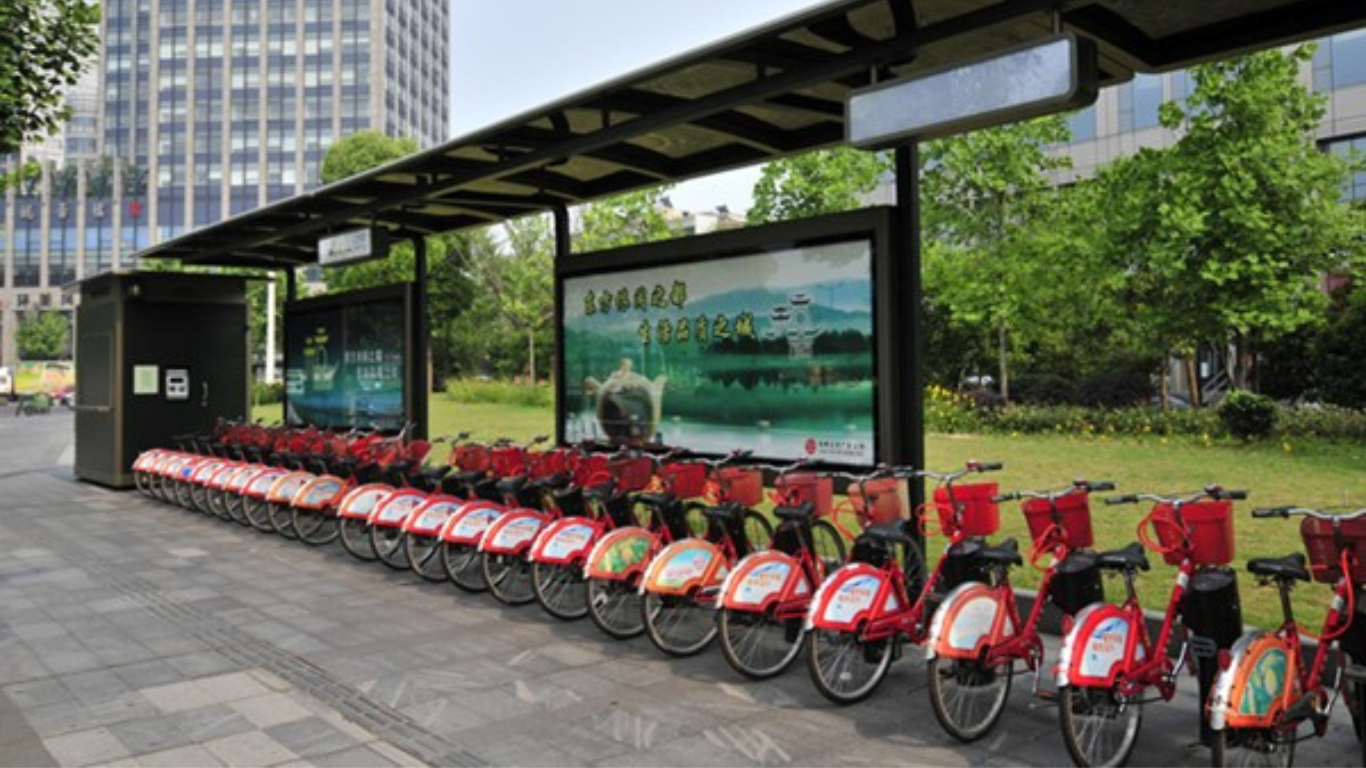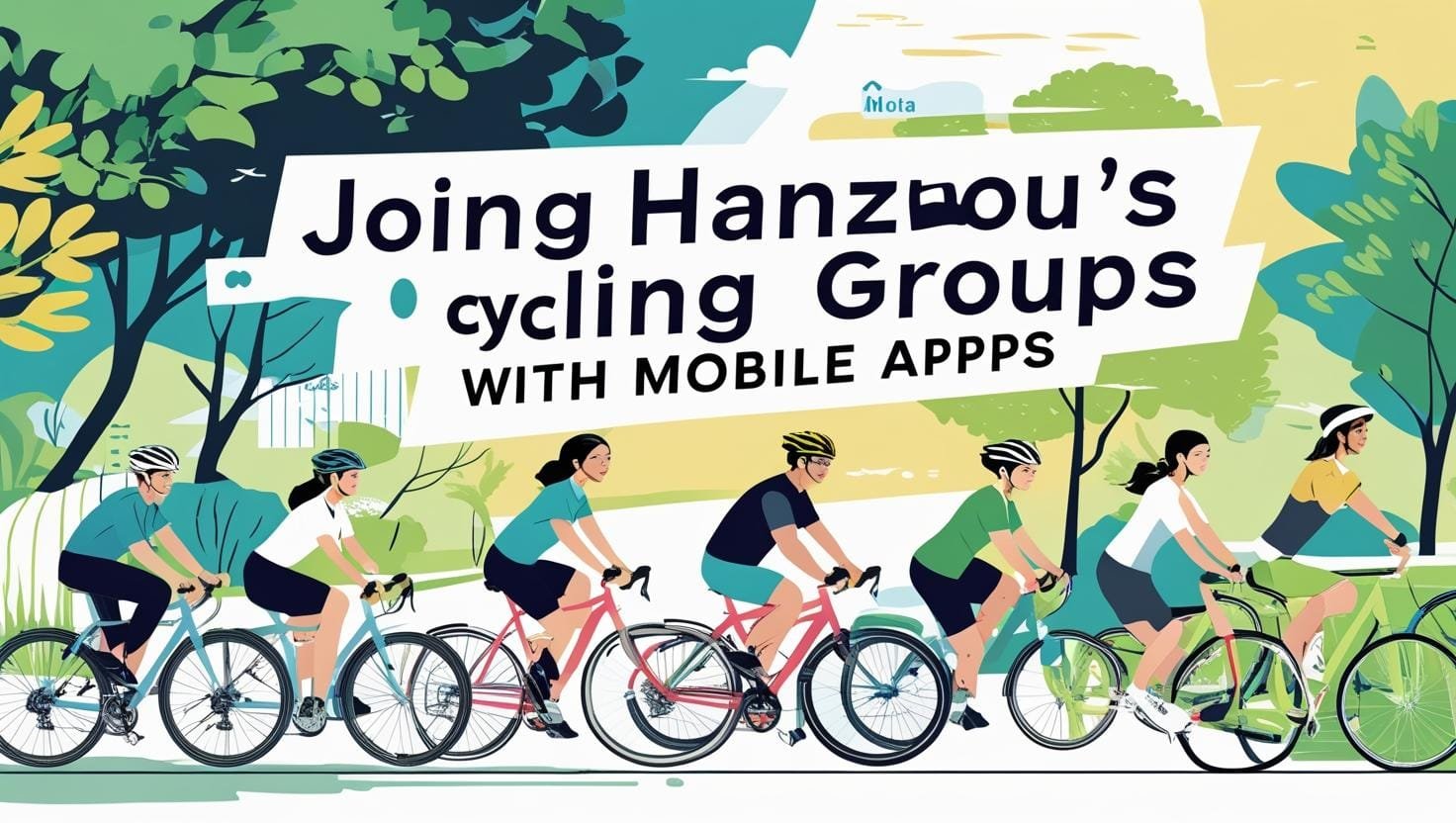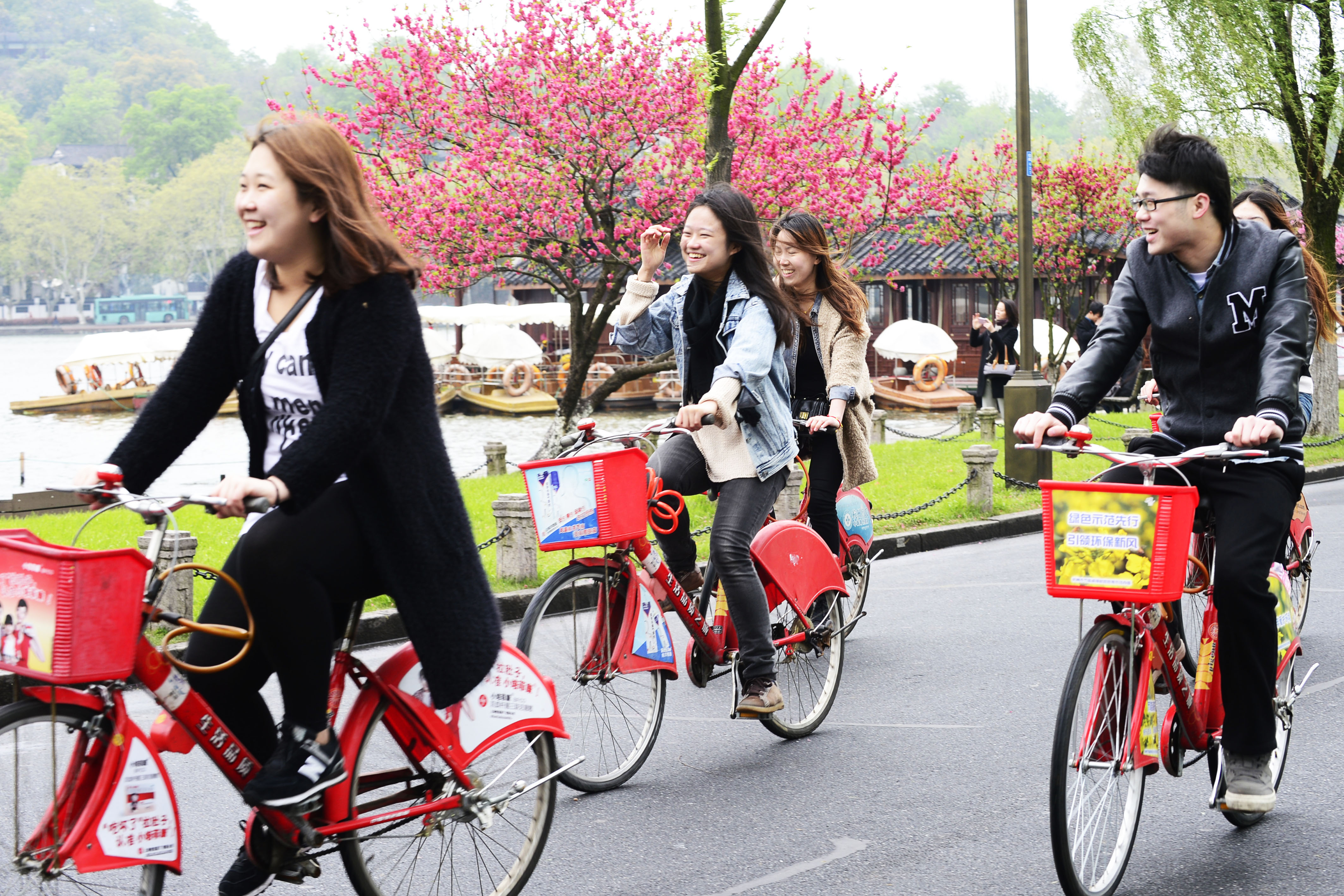Joining Hangzhou’s Cycling Groups with Mobile Apps
If you’re a traveler eager to explore China’s vibrant cities, imagine pedaling through the scenic landscapes of Hangzhou while connecting with locals through tech-savvy cycling communities. Hangzhou, known for its picturesque West Lake and innovative urban planning (Top 5 Futuristic Cities in China), offers a seamless blend of history, nature, and modern technology. Here at jusha.travel, we love sharing tips to make your China journey unforgettable, and today, we’re diving into the world of Hangzhou Mobile Cycling Groups, where apps transform simple bike rides into social adventures. Whether you’re into Hangzhou bike-sharing community events or seeking Mobike Hangzhou tips for urban exploration, this guide will help you pedal with purpose.

Discovering Hangzhou’s Cycling-Friendly Infrastructure
Hangzhou stands out as a premier destination for cyclists in China, boasting a well-developed network that combines tradition with cutting-edge technology. As one of the world’s leading cities for bicycle culture, Hangzhou has invested heavily in dedicated bike lanes and public sharing systems, making it an ideal spot for travelers looking to embrace Urban cycling Hangzhou. Picture weaving through tree-lined paths around West Lake, where ancient pagodas meet modern eco-friendly initiatives (What’s New in China’s Tech Scene).
One fascinating aspect is how Hangzhou’s cycling infrastructure reflects broader Chinese values of harmony and innovation. The city’s extensive bike lanes, spanning major streets and scenic routes, were designed with safety and accessibility in mind, drawing from China’s historical appreciation for physical activity as a path to wellness. According to official sources (Hangzhou Public Bicycle), Hangzhou features over 85,000 public bicycles and more than 3,600 stands placed every 200–300 meters, ensuring you’re never far from your next ride.
For travelers, this setup is a game-changer. It’s not just about getting from point A to B; it’s about immersing yourself in the local rhythm. If you’re new to QR code travel Hangzhou, start by scanning codes at bike stands to unlock rides effortlessly. This integration of technology highlights China’s rapid digital evolution, where apps and QR codes are as commonplace as street food vendors offering steaming dumplings—a perfect pit stop for refueling during your ride.
Navigating Public Bike Sharing and Community Access
Diving deeper, Hangzhou’s public bike-sharing system is a cornerstone of its urban mobility, offering practical tips that enhance your travel experience. With options like the official Dingda Chuxing app or integrations via WeChat and Alipay, joining the Hangzhou bike-sharing community has never been easier. These platforms not only provide access to thousands of bikes but also foster a sense of community among riders, from daily commuters to adventure-seeking tourists (Discovering Hangzhou Tea Culture).
A key tip for newcomers: The first hour of riding is free, with subsequent hours costing just 1 yuan, capped at 5 yuan per day (Hangzhou Public Bicycle). This affordability makes it perfect for exploring areas like the bustling Xixi Wetland or the historic Hefang Street, where you can sample local delicacies such as Hangzhou’s famous Longjing tea and stir-fried dishes. Imagine cycling past tea fields, the aroma wafting through the air, as you connect with fellow enthusiasts in real-time groups.
Culturally, this system echoes China’s emphasis on collective well-being and sustainability. Bikes are often integrated with other transport like buses and metro lines, promoting a greener lifestyle. For Hangzhou travel apps enthusiasts, apps like Mobike offer additional features, such as route planning and safety alerts, ensuring your rides are both fun and secure. Whether you’re a solo traveler or part of a group, these tools turn ordinary outings into memorable stories of urban exploration.

Joining and Using Mobile Apps for Cycling Adventures
Now, let’s get practical: How do you actually join Hangzhou Mobile Cycling Groups? It’s all about leveraging mobile apps that make QR code-based rentals a breeze (How to Enjoy a Hangzhou Lake Day Trip). Start with the Dingda Chuxing app or the mini-programs in WeChat and Alipay, which allow you to scan a bike’s QR code and start riding in seconds. No need for physical cards or hefty deposits—these apps handle everything digitally, reflecting China’s mobile-first culture.
For instance, if you’re following Mobike Hangzhou tips, download the app and register with a simple phone number verification. Once set up, you can browse available bikes, check real-time availability, and even join group events. This seamless process is a testament to China’s technological prowess, where apps like these are intertwined with daily life, much like how ordering street food via WeChat has become second nature.
A cultural insight: Cycling in Hangzhou isn’t just exercise; it’s a social activity. Many users organize group rides through WeChat groups, sharing routes that highlight hidden gems, such as the serene tea villages or bustling night markets. If you’re into QR code travel Hangzhou, use these apps to connect with locals who can offer insider tips on the best spots for authentic Hangzhou cuisine, like the savory Dongpo pork. Remember, always wear a helmet and follow traffic rules to respect local customs and ensure safety.

Engaging with Hangzhou’s Vibrant Cycling Communities
Beyond solo rides, the real magic lies in joining Hangzhou’s bike-sharing community and forming groups via mobile apps. Platforms like WeChat and Alipay host mini-programs where cyclists organize events, share experiences, and even track rides together. This social aspect aligns perfectly with Chinese culture, emphasizing community and shared experiences, much like gathering for a family dim sum brunch (Why a Hangzhou Tea Village Day Trip Is a Must-Do).
Urban cycling enthusiasts often use these apps to plan group outings, exploring Urban cycling Hangzhou routes that combine exercise with cultural discovery. For example, you might join a ride to the iconic Leifeng Pagoda, where participants swap stories over green tea and discuss tips for navigating the city’s bike lanes. If you’re interested in Hangzhou travel apps, look for features that allow route sharing and real-time updates, making it easy to connect with like-minded travelers.
An interesting fact: Hangzhou’s cycling boom is part of a larger national trend towards healthier, eco-friendly lifestyles, supported by government initiatives. This not only reduces traffic congestion but also fosters friendships, turning strangers into companions on the road. As you pedal along, you might even stumble upon local festivals or food stalls, adding a delicious layer to your adventure.
In conclusion, joining Hangzhou’s cycling groups through mobile apps offers an exciting way to experience the city’s blend of tradition and innovation, perfectly capturing the spirit of China travel. From the expansive bike-sharing networks and user-friendly apps to the vibrant communities that bring people together, you’ll find endless opportunities for exploration and connection. Whether you’re cycling around West Lake at dawn or joining a group ride through historic streets, these experiences will leave you with unforgettable memories.
Here at jusha.travel, we’re passionate about inspiring travelers like you to dive into China’s dynamic culture. If you’ve tried cycling in Hangzhou or have your own Mobike Hangzhou tips, share your stories in the comments below! Visit jusha.travel for more insights on China’s food, technology, and hidden gems, or explore related articles like our guides to Beijing’s hutongs or Shanghai’s metro system. Safe travels and happy pedaling!


